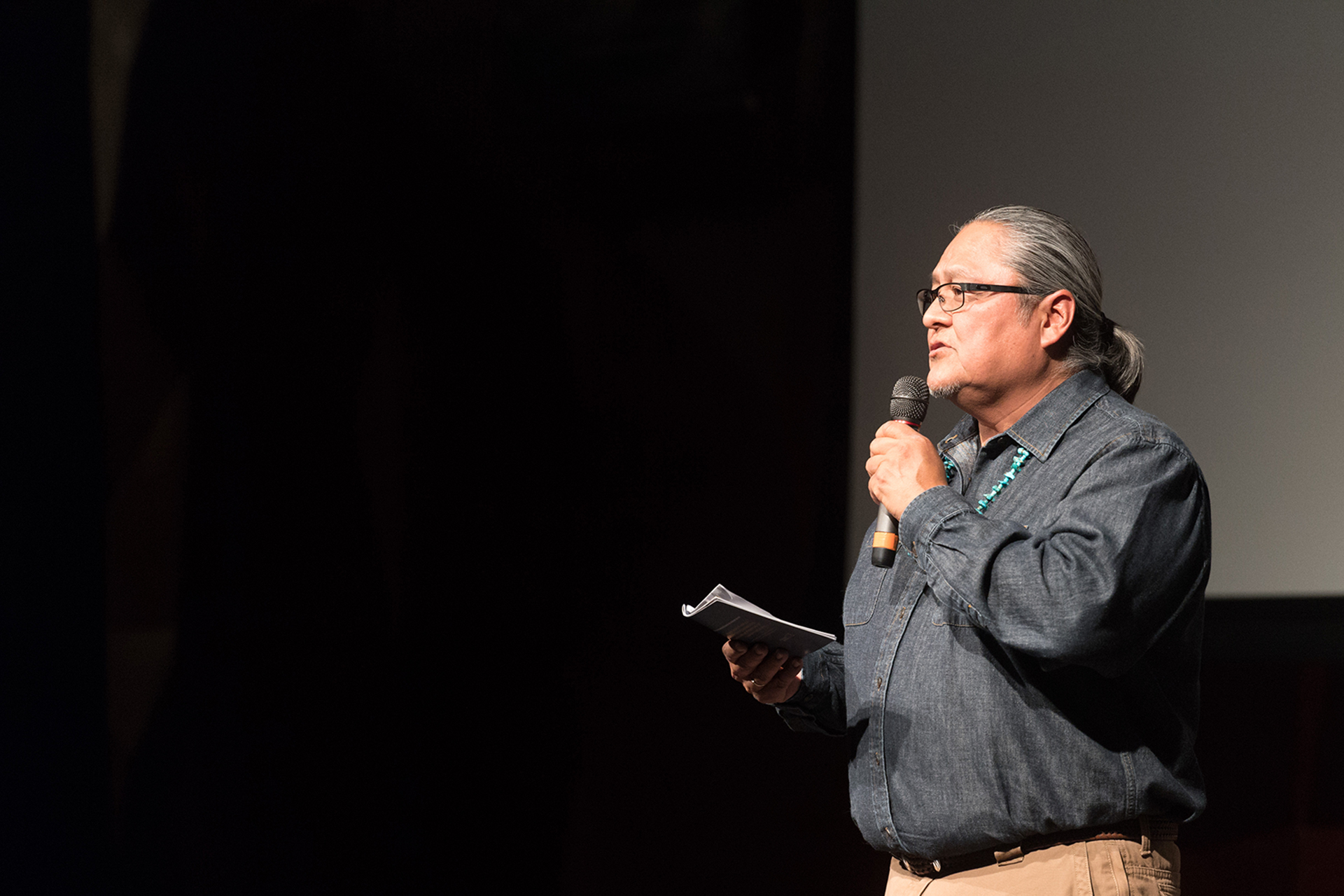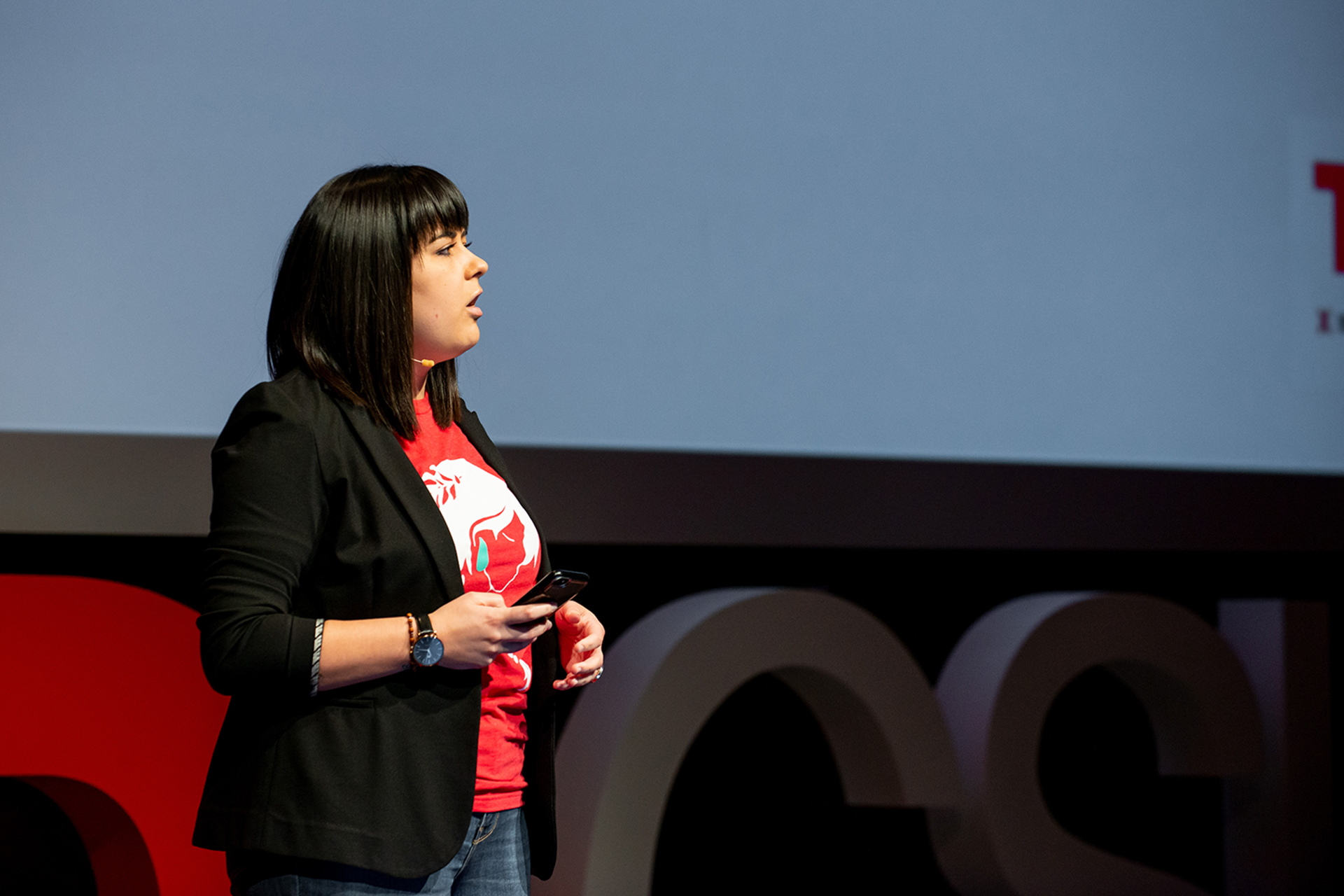‘Beyond state lines’
CSU celebrates new law granting in-state tuition for Native American students story by Joe Giordano published Oct. 7, 2021Over the summer, Colorado Gov. Jared Polis signed Senate Bill 29 into law, which offers in-state college tuition for members of Native American Tribes with historical ties to Colorado.
Colorado State University celebrated the new law, which adds to the foundation laid by the University community a decade ago through the Native American Legacy Award. The CSU tuition reduction offers in-state tuition at the University to qualified students who are citizens of state or federally recognized Tribes or descendants of Tribally enrolled citizens.
“We really welcomed the passage of the bill,” said Ty Smith, director of CSU’s Native American Cultural Center. “It enhances our ability to further support our students, and it really complements the existing support we offer to reduce the financial burden for students.”
Since its inception in 2011, 479 CSU students have benefitted from NALA.
When CSU welcomed its first cohort of 12 students through the Native American Legacy Award in 2011, James Calabaza was among the students.
Calabaza, a member of the Santo Domingo Pueblo in New Mexico, earned his bachelor’s degree in agricultural business and economics at CSU while being active in the Native American Cultural Center.
At NACC, Calabaza fondly recalled participating in the North Star Mentoring Program, which matches incoming first year and transfer students with older students to help them transition to college.
Calabaza explained that he was attracted to CSU in part because of the region’s historical ties to the Cheyenne and Arapaho as well as being part of a community that would allow him to grow and thrive. Today, Calabaza serves as the national program director for Trees, Water & People, a Fort Collins-based nonprofit dedicated to improving lives by helping communities to protect, conserve and manage their natural resources.
“I was really fortunate,” said Calabaza, who graduated in 2016. “One of the biggest challenges is paying for college and not putting that burden on your family. The Native American Legacy Award was very instrumental for me to get my degree.”
More than just in-state tuition

CSU graduate James Calabaza (left) was one of the first students to receive the Native American Legacy Award. He now is the national program director for Trees, Water & People, a nonprofit dedicated to improving lives by helping communities to protect, conserve and manage their natural resources.
In February 2021, CSU President Joyce McConnell penned an opinion piece in The Denver Post expressing gratitude to the Colorado General Assembly for taking up the issue of in-state tuition for Native American students.
When the bill was signed into law in June, the legislation recognizes 48 Tribes with historical ties to Colorado for in-state tuition. CSU, similarly, started in 2011 with close to 90 Tribes and has since expanded the program to include all 574 federally recognized Tribes and all state-recognized Tribes.
“I was really fortunate. One of the biggest challenges is paying for college and not putting that burden on your family. The Native American Legacy Award was very instrumental for me to get my degree.”
— James Calabaza, 2016 CSU graduate
According to NACC Assistant Director Tiffani Kelly, chair of CSU’s Native American Advisory Council, the passage of Senate Bill 29 is significant beyond in-state tuition.
“The law classifies them as in-state students, so they’re also eligible for financial aid that is specifically for Colorado residents,” she said. “Our NALA students were still classified as out-of-state; they just had a tuition reduction. So, this is definitely a good addition and allows for greater access to educational opportunities for our communities.”
Kelly explained that CSU will continue to offer in-state tuition through NALA for Native American students who are not members of one of the 48 Tribes listed in the legislation.
A state-wide effort
The roots of the new law can be traced across the state.
According to Kelly, Fort Lewis College in Durango has been at the forefront of providing tuition assistance to Native American students. The college offers free tuition to qualified Native American students because of an agreement with the federal government.
At CSU, the Native American Legacy Award was cemented through activism after a 2010 incident in which a CSU student encouraged the student body to wear Native American clothing to a basketball game against the University of Wyoming to suggest a “Cowboys vs. Indians” theme.
“There was pushback from Native and other students,” said Kelly, who was a student at the time. “We were harassed, threatened and bullied because of our identities, and we decided to push further, and that’s when a group of students came together on the Plaza to protest and demand action from the University.”
The Native American Cultural Center played a key role in turning that activism into the Native American Legacy Award, Kelly explained. The NACC office reached out to numerous Tribes to discuss the benefits of this potential award and what a partnership would look like with NACC and CSU if Tribal communities sent their students here, she added.
“In 2011, the NACC office, with Native and Indigenous students, staff and faculty, gave this recommendation to President Tony Frank with a list of almost 100 Tribes who had historical ties to this land,” Kelly said. “President Frank and the BOG approved at the advice and recommendation of the students and Native community at CSU.”
Land Acknowledgement


The Native American Cultural Center’s director, Ty Smith, and assistant director, Tiffani Kelly, who are both members of CSU’s Native American Advisory Council have been strong advocates for reducing the financial burden for students.
As stated in CSU’s Land Acknowledgment, the land on which CSU resides is the traditional and ancestral homelands of the Arapaho, Cheyenne and Ute Nations and peoples. Smith explained there’s a deep connection between the land and Native American Tribes.
“Creation stories, healing ceremonies and celebrations are part of this land,” he said. “It goes back thousands of years, and it isn’t defined by existing state lines.”
“Creation stories, healing ceremonies and celebrations are part of this land. It goes back thousands of years, and it isn’t defined by existing state lines.”
— Ty Smith, director of CSU’s Native American Cultural Center
For Calabaza, the Native American Legacy Award has allowed him to reconnect with the land and has sent him on a path of advocacy. At Trees, Water & People, he works with Indigenous peoples in the U.S. and Central America, providing much-needed economic and environmental resources in the support of the preservation of natural resources and culture.
When Calabaza heard about the passage of Senate Bill 29, he said that he thought it was long overdue.
“This should have happened years and years ago,” he said. “But I’m very, very proud and supportive of what happened. I’m glad the state is recognizing that financial aid is a big issue for Native American students attending public institutions. So, I’m proud they’re offering this financial package to students who come from communities with historical ties to the state of Colorado.”
Smith agreed: “We’re always looking for ways to reduce the financial burden. It’s a great bill, but we need to continue to do more for our students.”